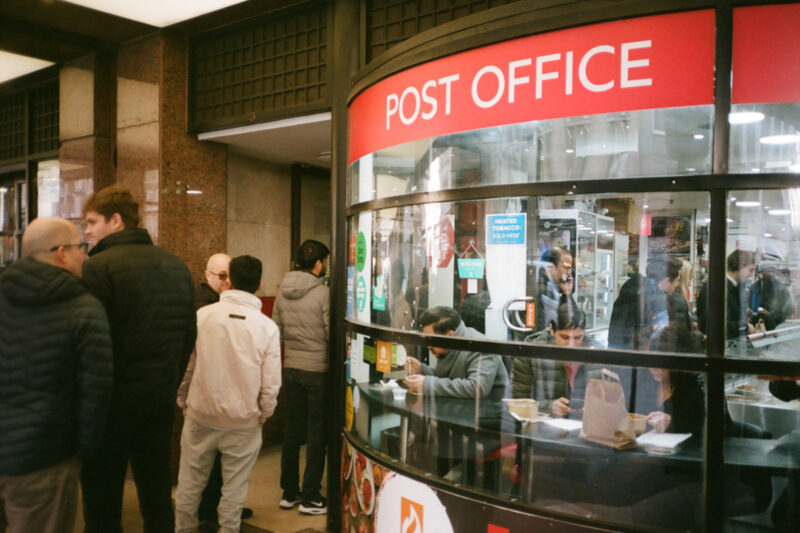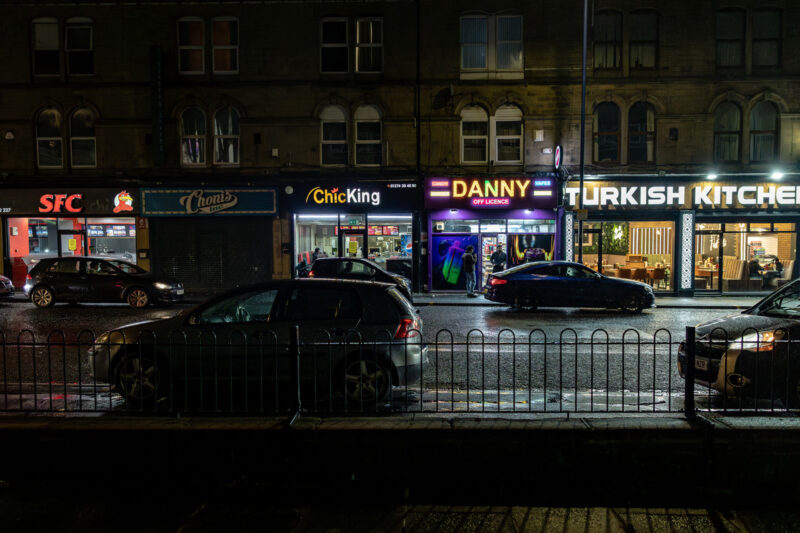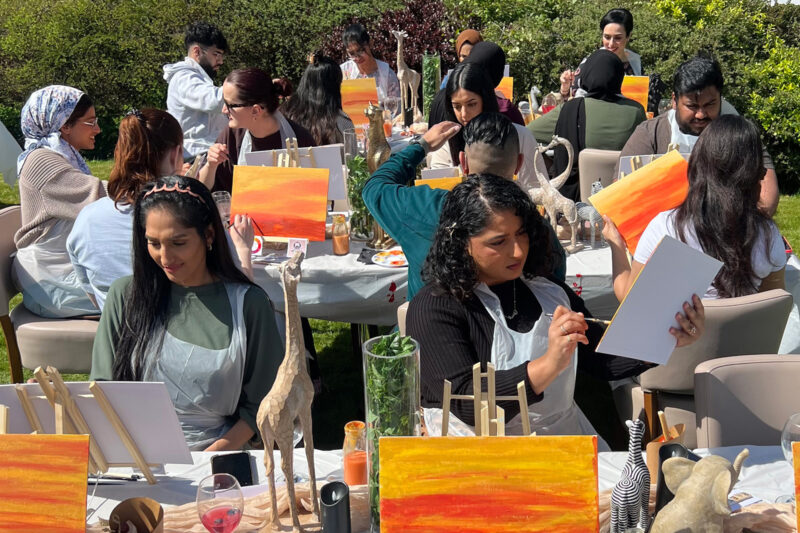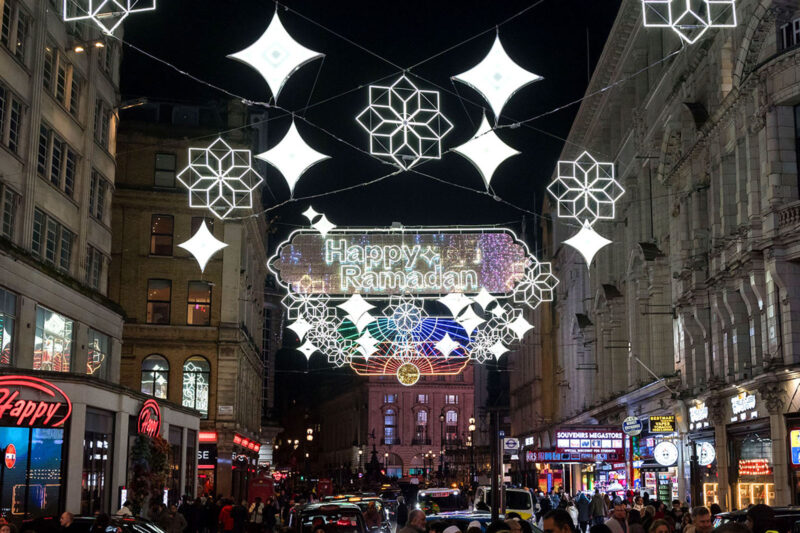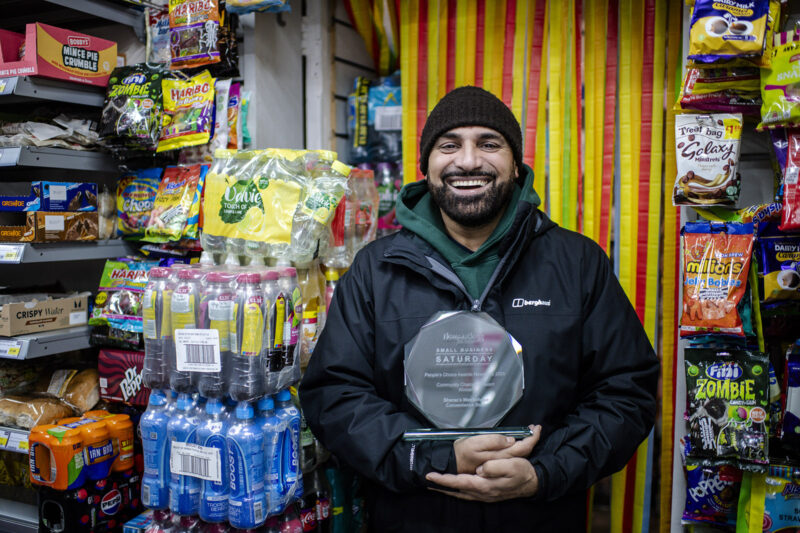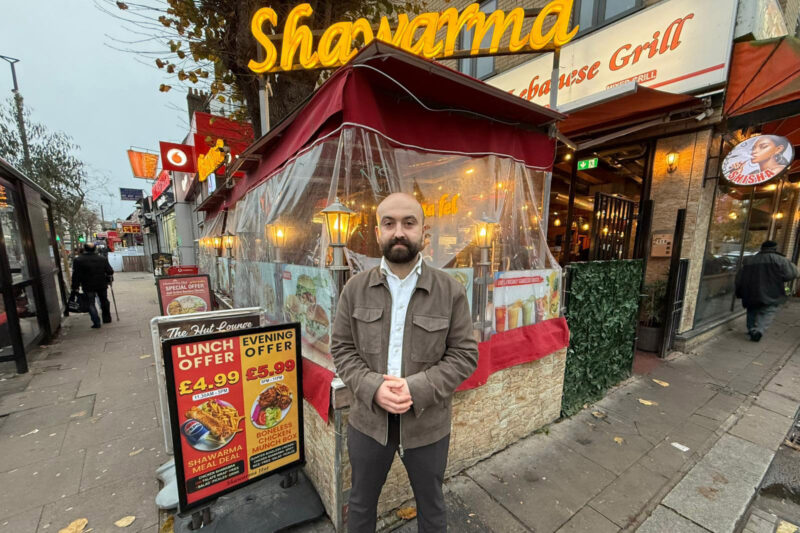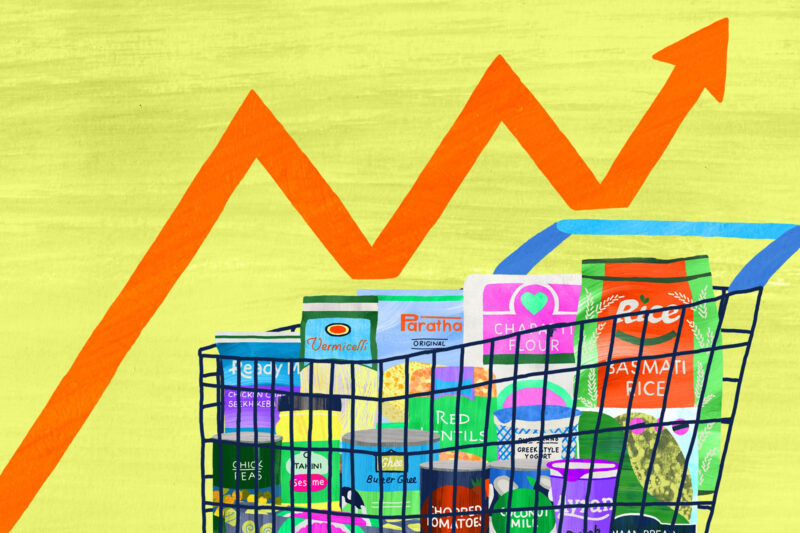‘It’s a dead town’: Bradford remains a victim of the decline of the UK high street
The cost of living crisis was just the latest blow to small businesses in the Yorkshire city. Can Bradford’s City of Culture status save the high street?
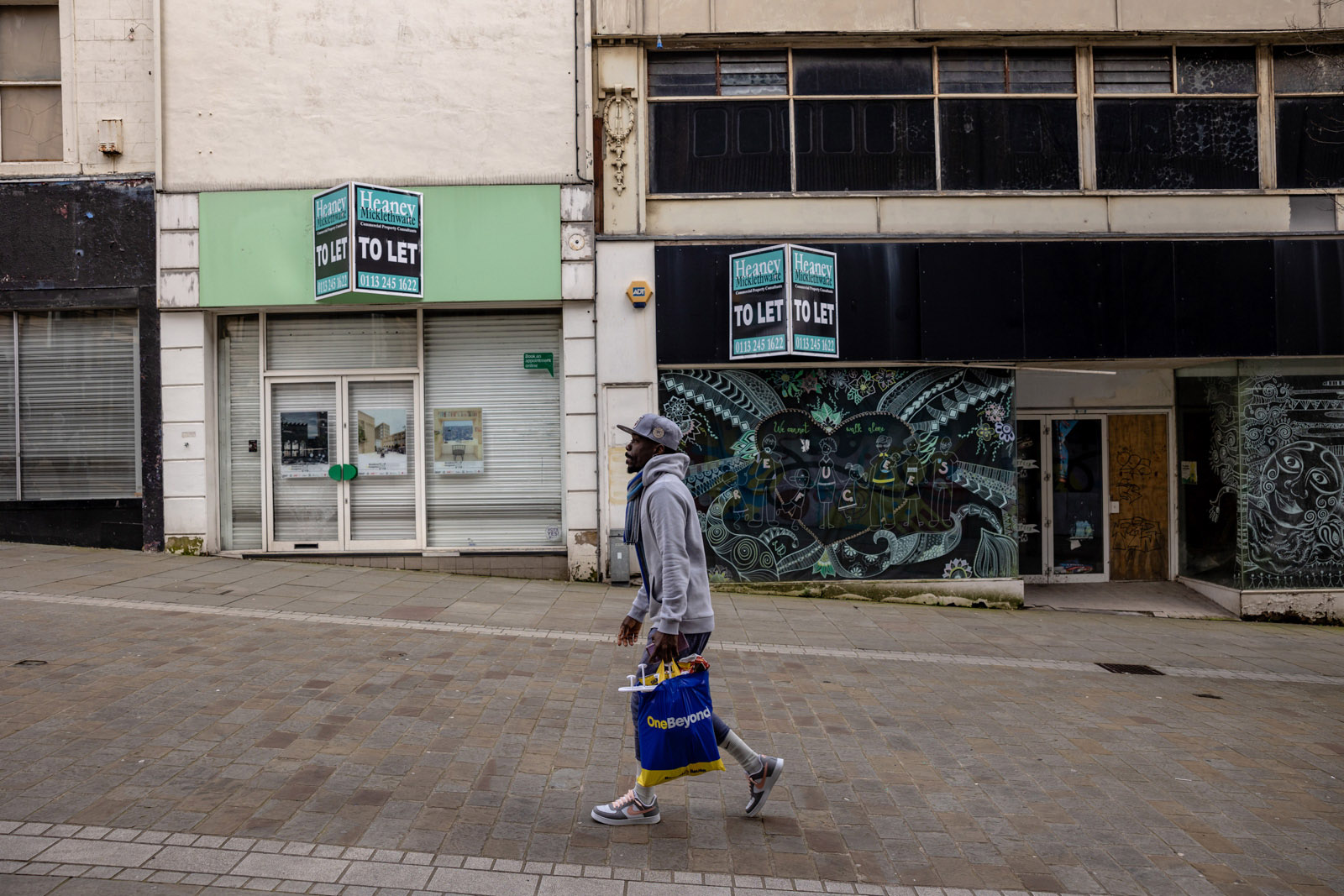
Imran Khan looks on to the empty street through the window of his shop in central Bradford. The tailor opened his business almost a decade ago in what was then a bustling city. But with many shops now shuttered and “To let” signs plastered above doors, Bradford is a shadow of its former self. Khan is just one of many local business owners hit by the ripple effects of the Covid-19 pandemic and the cost of living crisis, as independent retailers struggle to stay afloat.
It’s a similar picture across the UK. Since 2018, 6,000 shops have closed across Britain’s high streets, according to the British Retail Consortium. The report from July 2023 pointed to the effects of lockdowns during the pandemic, as well as increased rents and energy costs. These factors put pressure on small businesses that are more likely to struggle to meet high operating costs.
“When I first opened there were loads of shops and it was alive, it was amazing,” Khan said.
“Now when I look out of the window, shops are boarded up, for rent, or for sale. It looks like a dead town.”
As many as 2,255 companies in the West Yorkshire city closed in 2022, which is among the most multicultural cities in the country. The figure rose from 1,900 the year before, according to the UK’s Office for National Statistics.
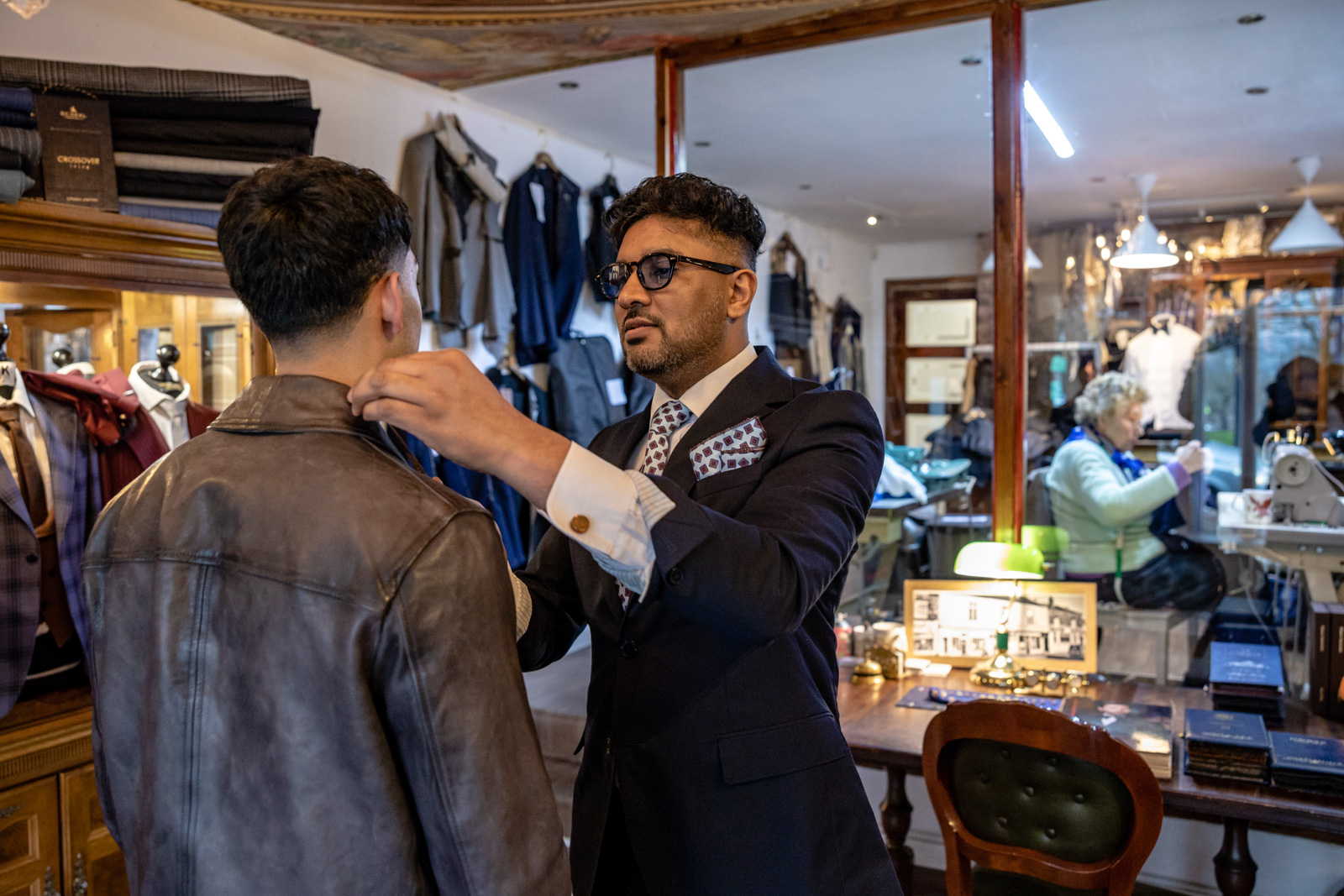
Khan, 41, now runs three tailoring stores in the city. He caters for the city’s diverse community, and says his company, IK Collection, has designed clothes for a number of high-profile clients including King Charles and former ice skater Christopher Dean.
But he fears his business will become another casualty of Bradford’s decline. When he opened his first premises in 2016, he was paying £50 to £60 a month in electricity bills for his shop, and now pays between £200 and £300.
In an effort to keep electricity costs lower, a year ago Khan changed his opening hours from 9am-5pm to 1pm-7pm. “I had to cut down on everything. As a business you have to do everything to survive,” he said.
“Every day we are worried. Anything can happen. It’s not good for business and I’m worried about the future.”
He added that the closure of local businesses has had an effect on Bradford’s sense of community. “There were a lot of corner shops selling things from different cultures that have closed now,” he said, noting that “Bradford comes together” by people gathering and meeting in local shops and cafes.
Khan has had to pass on some of the increased costs to customers but, in one of the most deprived towns in the UK, not everyone is able to pay more.
“I try to explain it to the customers, but they will go buy something cheaper,” he said. “When we opened we had a lot more people coming in, but now they don’t want to spend money because of the cost of living.”
Rising costs in the UK mean more than 60% of small businesses are having to reduce profit margins, said the 2023 SME Insights Report, which looks at the small business landscape across the UK.
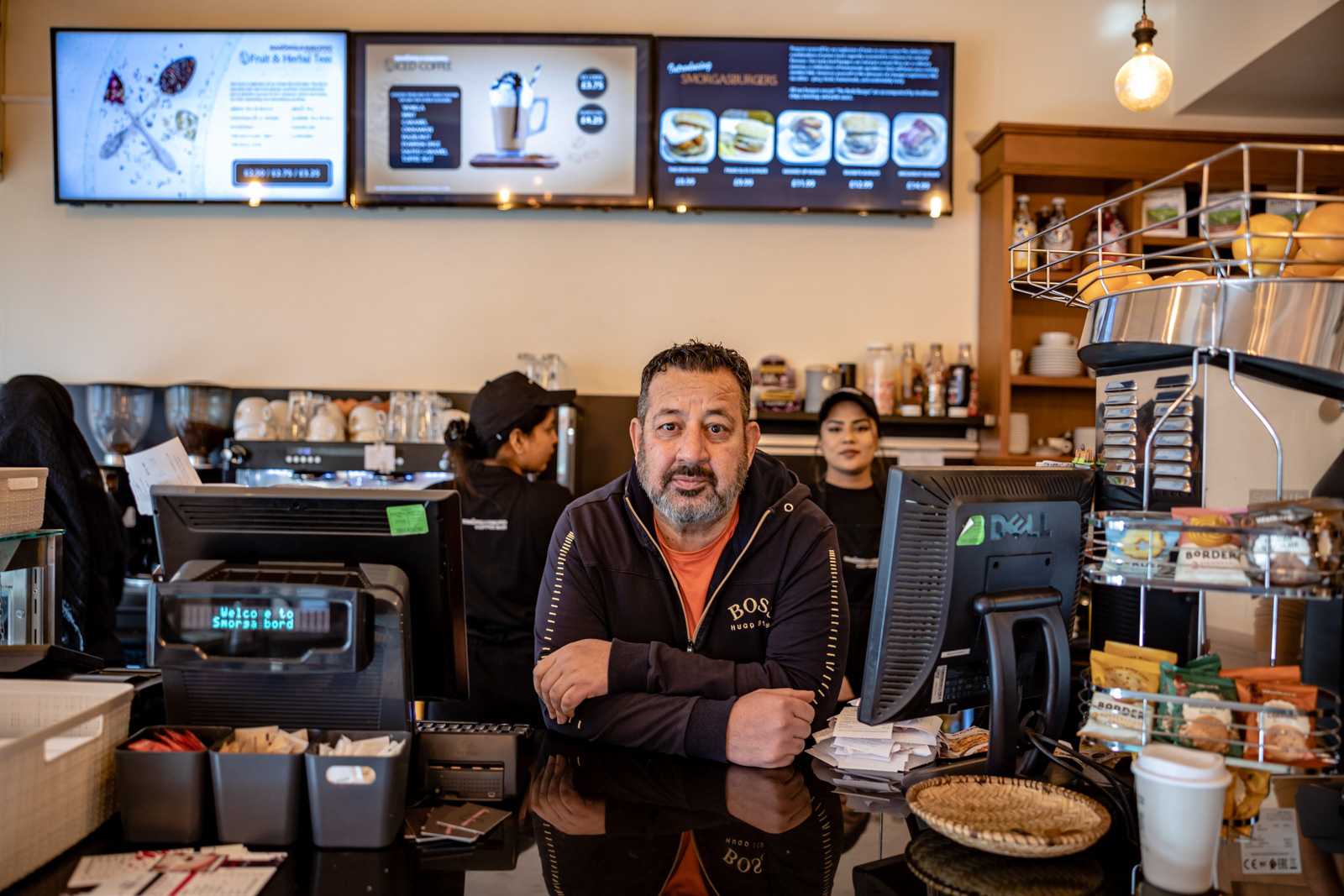
Arif Mehmood, 55, whose family has run Smorgasbord cafe since 2007, has also witnessed the damaging effects of the rising cost of living on the city. The cafe sits just around the corner from Darley Street, once the heart of the city’s vibrant shopping area. It now feels empty.
Over the past 17 years Smorgasbord has seen a notable rise in wholesale prices of goods, particularly since the Covid-19 pandemic which saw the majority of shops, eateries and cinemas across the UK temporarily shut down, crippling many businesses, particularly independent retailers. Some 300,000 businesses closed permanently in 2020 alone.
Mehmood said that before the pandemic the cafe was buying olive oil from suppliers at £15 per five litres. Now it pays around £30 for the same amount.
“We have to pass it on to customers, but in a sensible way,” he said.
Despite the cafe remaining a popular spot for diners, the company’s profits still decreased over the past year. “It’s bonkers. If we did not get the footfall we’re getting we would have gone under. It’s a sad state of affairs,” Mehmood said.
Mehmood feels that a lacklustre atmosphere in the city is contributing to the closure of local businesses as people don’t want to come into Bradford to shop.
“We can’t get rid of the perception that it’s a dump,” he said. “When people see empty properties, it’s not good for our image.”
Mehmood has lived in Bradford for almost 20 years, but since he moved from Coventry, the city has changed drastically. It was once buzzing with nightlife and street life.
“It was amazing,” he said, adding that since then “it’s been on an exponential decline”.
But major new developments could change the city’s future. Bradford is set to become the UK’s City of Culture for 2025, a title awarded by the Department for Digital, Culture, Media and Sport every four years. The city will receive £10m in government funding, with the initiative expected to bring in more than 15 million visitors.
The programme is projected to bring an extra £700m to the local economy and create 3,000 new jobs, Bradford council told Hyphen.
“It will place Bradford district at the heart of the country’s cultural conversation, attracting talent and investment, creating new skills and jobs and building civic pride,” the local authority said.
The council is also working to create green spaces and transform transport in the city by improving routes and facilities for public transport, cycling and walking.
As part of these regeneration plans a new shopping centre on the half-empty Darley Street is set to open this year, as is a new music venue, Bradford Live, inhabiting what was previously a cinema. The council said these developments aim to “shift the city centre away from an over-reliance on older retail space to a more balanced economy”.
Khan is optimistic that the City of Culture title can help Bradford thrive again, and attract the well-needed business it has been missing.
“More people will be coming here,” said Khan. “In 2025 we are going to have a fantastic year. We are ready for it and I am looking forward to it.”
Coventry, the UK’s current City of Culture, saw 8.2 million visitors into the city in 2021 when it was granted the title. The programme helped bring millions of pounds of investment into the city and stimulate a £150m boost in tourism income above pre-Covid levels.
Khan hopes these developments will also highlight what makes Bradford unique: its sense of community and rich culture.
“Bradford is open to everyone, it is multicultural and brings everyone together. That is what Bradford is all about. I have never seen that in any other town,” he said.
“When I come into Bradford it gives me that buzz and I’m glad to be back.”
 Newsletter
Newsletter


